It can take awhile to accept that turning toward our trouble is necessary for a wholehearted life. But once we understand that concealing or bypassing our difficult emotions doesn’t help in the long run, we who are drawn to grow and heal are faced with learning how to turn toward them in ways that do help.
The idea of working with our inner difficulty is different from actually being with it. Really being with our difficulty is impossible without a courageous heart.
The Inner Set Up
Conceptually, we can entertain the idea of working with ourselves in challenging states, but emotionally, it can feel like we’re being given an armful of dynamite. We all feel frightened of this inner territory. At best we’ll feel incompetent and bumbling, at worst we feel we could die.
I’m not exaggerating about the fear of death. When we are little and experience intense distress (none of us escapes this), our nervous systems get overwhelmed. Due to the fact that we actually are vulnerable, underdeveloped, dependent beings in these times, it is a life and death situation. If we don’t get physical and emotional nurturance and comfort as babies, we actually will perish. If we lose the connection of our caregivers, we could be snatched, killed, or wither away.
Because we don’t have the resources to cope with this overwhelm as little ones, our bodies get defended and contracted and we essentially lock up or store this overwhelm for later (or, we hope, never). And before most of us can even think or speak, we feel out strategies to try to avoid similar overwhelm in the future, which is the beginning of our forming a personality, our Enneagram type. Pretty clever for little beings, isn’t it?
As adults, when we feel threatened or overwhelmed, the deep, raw states that never got resolved also get evoked in our experience in the moment. We may have adult bodies, but our emotional experience can feel very young. In these moments we also feel we don’t have the resources or agency to help ourselves. Implicitly, we assume we’ll be swamped again with no way out. This was truly horrible when we were young, and now adds a different kind of horrible for our adult egos that want to feel competent and successful. This whole set up makes it feel foolish to enter the territory if we can avoid it.
We Are Scared of Our Inner Experience
I was at a training with Sandra Maitri recently where she explained how each of us, regardless of our primary Enneagram style, grapple with the existential dilemmas within each of the nine points. Her description of the universal experience for the Six-ness in all of us struck a deep I chord in me.
We all mistrust our inner experience. Whether this is conscious or not, Maitri says we find it very aversive to  objectively face what’s sitting here in our experience in the moment. Hearing this, I could recognize how the constant churn created by my ego, my inner critic, my to-do list gets ginned up to “protect” me from simply allowing what’s happening inside. After all, what if I found something lazy? weak? rejectable? shadowy? or perhaps worse- empty?
objectively face what’s sitting here in our experience in the moment. Hearing this, I could recognize how the constant churn created by my ego, my inner critic, my to-do list gets ginned up to “protect” me from simply allowing what’s happening inside. After all, what if I found something lazy? weak? rejectable? shadowy? or perhaps worse- empty?
When you think about allow this in yourself, can you feel the innate fear that arises? What if you were to relax and allow yourself to receive and make contact with everything in your inner experience?
Basic personal and social conditioning tells us we’d be in deep trouble if we weren’t implicitly subduing or managing this deep inner content away.
Maitri suggests that allowing real intimacy with ourselves- regardless of what we’re contacting- is deeply rewarding. “Our hearts resonate with the truth when we encounter it,” she said. Making peace with ourselves, finding ease in inhabiting our own consciousness is “the greatest gratification we can have as humans.”
The inner fake news report that we’ve been subjected to 24-7 is that we can’t trust ourselves, especially our interiority. Common inner headlines read: “You must behave [this way]! Never [that way]” “You are not the kind of person who feels [that way]! Only [this way]”
You can use your awareness of your Enneagram type to fill in the blanks, although it’s easy to make a long list beyond our types since we are regularly bombarded with ways that we think we need to be other than we are.
Courage Is Not for the Faint of Heart
So how do we get brave enough to allow contact with anything and everything inside? It usually takes life experience to help us see that perpetually avoiding it ends up taking a big toll on the soul. In time, we find that following the dictates of our Enneagram type, or our social or cultural conditioning, even if we are “successful” at it, doesn’t create true satisfaction.
Maybe you advance in your career, but still feel the same or greater insecurity about your worth. Maybe you find the relationship you’ve always wanted, but feel distant or empty inside. Maybe you become adept in your meditation practice, but fall prey to the usual triggers in your life. Maybe you have a beautiful home and good health, but feel like your life lacks purpose.
Take heart with yourself: you are right on track. It’s fine to cultivate a “good life.” It’s also good and right to feel the longing for something that satisfies on a different level. This is your inner engine for development and the seeking becomes stronger once the initial tasks of ego development have been completed.
Interestingly, having a “good life” can actually make it harder to want to engage in the difficult process of mining what’s been left underground and making contact with the places we’d like to forget about. We resist what feels like it will undermine the security and success we’ve built.
Helen Keller reminds us that “Avoiding danger is no safer in the long run than outright exposure. The fearful are caught as often as the bold.”
Sometimes life breaks us open and we are placed face-to-face with that which scares us inside. But the territory can also be approached bit by bit in a supportive way that is both tolerable and rewarding.
Swimming Lessons
When my son was about eleven, he had not yet learned to swim. It was getting in the way of his enjoying social events and left him feeling afraid and discouraged. He, who was so physically adept elsewhere, felt incompetent and failing. We had tried ordinary lessons, but he was very thin and didn’t float easily, so he stopped being willing to try what seemed so doable for his sister and his friends. I found a teacher who specialized in helping people who were scared of swimming. Anxiously, he agreed to try private lessons with her.
 She had an aura of care and confidence. Having walked hundreds of children through this gauntlet before, she loved helping them overcome their fears and learn to have fun and feel confident in the water. Her approach was systematic and gradual. First she took him through several experiences to undo his fear of sinking or drowning. Once she had convinced his body that the danger was extremely low, he was asked to do simple tasks that were a little bit challenging, but doable. Graduating bit by bit, he added skills and started putting them together one by one, until he could successfully swim across the pool.
She had an aura of care and confidence. Having walked hundreds of children through this gauntlet before, she loved helping them overcome their fears and learn to have fun and feel confident in the water. Her approach was systematic and gradual. First she took him through several experiences to undo his fear of sinking or drowning. Once she had convinced his body that the danger was extremely low, he was asked to do simple tasks that were a little bit challenging, but doable. Graduating bit by bit, he added skills and started putting them together one by one, until he could successfully swim across the pool.
Witnessing her approach was inspiring, and familiar. Every part of her knew the water was safe and she also knew it was terrifying for my son. This reminded me very much of my experience with inner work. I had received similar support and encouragement from my teachers and counselors to learn how to brave my own depths. And it reminded me of the great satisfaction I feel when I operate from the deep faith that I’ve gained when in guiding my clients in their inner worlds.
But There Are Sharks in the Water!
Sure, you may say, but water is a concrete reality that has certain principles. Learning to swim is not the same as my stepping into emptiness and rejection!
Actually, I’d argue that it’s more similar than you may think. And the results of learning to get in direct contact with the places that scare us are both greater and more enduring than the pleasure swimming can offer.
In Swamplands of the Soul: New Life in Dismal Places, Jungian psychologist James Hollis writes:
“Courage is not the absence of fear. It is the perception that some things are more important to us than fear. The individuation task, for example, is more important than whatever regressively blocks us. Interestingly enough, we make a great move toward personal liberation when we can acknowledge the existential angst directly, know ourselves to be fragile beings clinging to a spinning planet hurtling through space, and at the same time grateful for such a grand ride. We gain when we are able to move from the anxiety, which, like fog, obscures the forward path. When, in that cloud, we can identify specific fears, we will often find them groundless to us as adults, though they were once overwhelming as a child…. What I can make conscious, face directly and deal with as an adult, frees me from unconscious bondage to the past. We truly perceive that something is more important than what we fear. And there is. We are more important than what we fear. This is what is meant by courage.”
How I Learned to Swim in the Depths
Like my son’s swim teacher, my teachers have guided me with clarity and attunement through my resistance, alongside my fears, into very rich territory.
Because they, too, have learned the way to safely dive down, they could be with me in a grounded and reassuring way. When I was on my edge, I could tether to their confidence that was based in their own real experience.
For all the dread my ego had about how terrible it would be to contact my anger, my loneliness, my sense of worthlessness, my vulnerability, and even my power, it turns out that its scare tactics were, if not fake news, then old news.
Not only could I tolerate the things I thought I couldn’t, but there was tremendous beauty in them. The places that I was frightened of reconnected me with potent aspects of my wholeness, my goodness, my trust in life.
For me, the process of repeating this descent over and over has developed in me an inner sense of capacity, resilience and strength. In The Places That Scare You: A Guide to Fearlessness in Difficult Times, Pema Chödrön states, “The essence of bravery is being without self-deception.” The willingness to be with the truth of my experience, especially when I don’t prefer the flavor of the moment, is emboldening, healing, and, as Maitri would say- “gratifying” all at once.
Don’t get me wrong— it is not that I don’t encounter new layers of fear, shame, anger, or abandonment. The unexpected body of water I’ll encounter today or tomorrow can still bring up reflexive aversion or dread. It’s just that now I feel less afraid of almost any potential experience in life. I feel more up for life in all its flavors- even for the inevitable moments of despair, uncertainty, and unworthiness. I feel this because I know they all can lead me somewhere precious and more satisfying.
A Way Forward
Whether you feel ready for this kind of practice or not, life drops in opportunities all the time to tickle our troubled territory. When life is really pushing us to pay attention, we will notice extra stress or anger about our circumstances.
The good news is that life is also constantly providing us resources. Externally this could be in the form of a companion, counselor or coach who has “been there.” It could also be in the form of a beautiful place in nature, or a touching poem. And more good news is that the more we lean into this work, the more we find and feel the resources inside us.
Here is Chödrön again:
“Compassion practice is daring. It involves learning to relax and allow ourselves to move gently toward what scares us. The trick to doing this is to stay with emotional distress without tightening into aversion, to let fear soften us rather than harden into resistance.”
She does mention here that there is a “trick” to it. This is no small trick she refers to. Our deep-body memories, our Enneagram types, our social and emotional conditioning all make it a pretty tricky trick. Just as we don’t recommend that people learn to scuba dive on their own, or go diving without a buddy, we need support to learn to abide in these places that have the potential to bring on overwhelm. Finding capable support is essential. And just as diving allows us access to some of the most stunning natural mysteries on our planet, so too does learning to dive into your own depths.
Are you ready to allow more of your truth to be known? Are you ready to open to your inner resources and liberate old stuck energy? Consider setting up a free 20 minute conversation with me to see whether transformational coaching is a good fit for you.
Here’s to the thrilling, terrifying, gratifying journey!
I always love hearing about your experiences with this- or any questions that arise. Please comment below.


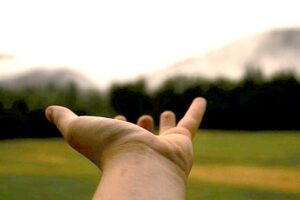

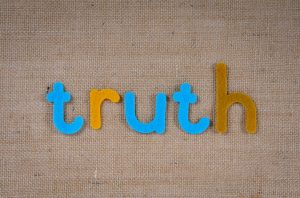
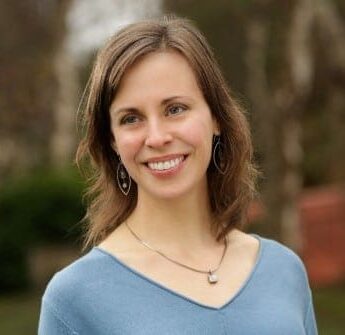
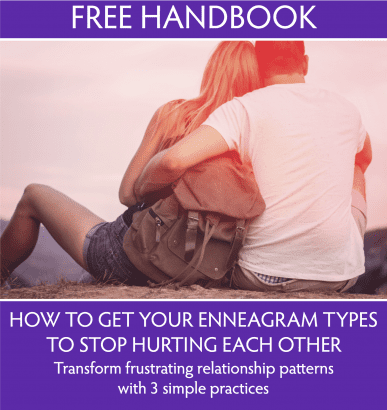

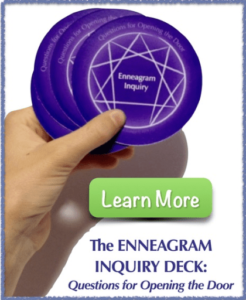
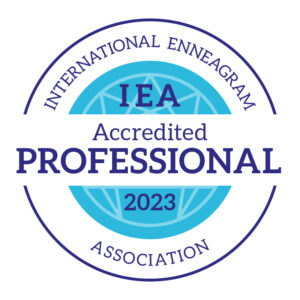
2 Responses
Thanks for your wise words Sarah. They reminded me of why courage was the first virtue listed by Aristotle. Your quotes from James Hollis that ‘’We are more important than what we fear. This is what is meant by courage’’ and from Pema Chödrön encouraging us “to let fear soften us rather than harden us into resistance” are powerful reminders of our challenge. As a coaching client of yours I deeply appreciate and can testify to your ability to, as you write that your teachers have done for you, “guide me with clarity and attunement through my resistance, alongside with my fears, into very rich territory”.
From my perspective as a wealth manager I agree with your point that having a “good life’ materially can actually make it harder to be motivated to explore inner terrain. Where clients take up my offer of diving deeper than the usual money matters they can reap tremendous dividends. Applying the type of wisdom you articulate enables exploring the challenge of “How to Lead a Rich Life”, that Fast Company magazine featured in a lead article addressing the fundamental question: “Can money buy happiness?” The article noted that while it is often assumed that money equates to happiness this, as the saying goes, “ain’t necessarily so”. As you so clearly higlight, there is more on offer than money can buy.
Your words also resonated with my current re-reading of The Unfolding Now by A.H. Almaas and doing the inquiry exercises with a group of friends. We are up to Chapter 5 Opening to Ourselves that includes the following guidance: “As we practice – which means inquiring into what is going on, recognizing our experience, being where we are, abiding in it, and learning to be ourselves – we encounter a stance of defensiveness that we become more and more conscious of. That defensiveness is a barrier against our unconscious, but also against much of our potential, because it is a defense against experience, a defense again the expansion of awareness, a defense against being present, a defense against being real.”
Thanks for being so real Sarah and for your exemplary courage.
I’m touched by your sharing, Rodger. Thank you.
I appreciate your weaving in threads of how this shows up in your experience and pursuits. The reminder of the deep potential that our defensiveness hides from us is most welcome. It adds encouragement to take the first step again and again.